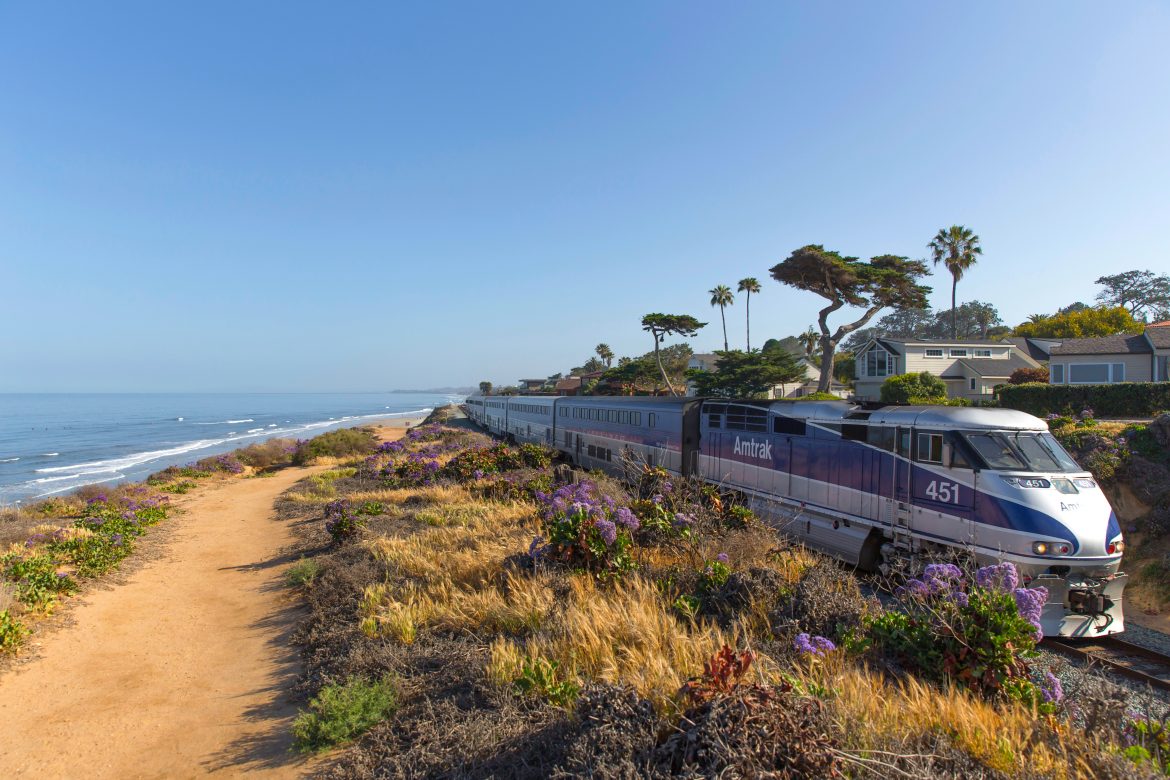A recent travel survey revealed that 45% of Americans plan on visiting a National Park within the next six months. And why not? With the ongoing pandemic, National Parks are an excellent way to have a vacation and explore America’s most stunning natural wonders, all while staying safe and socially distanced.
The only problem? For most Americans, National Parks are pretty far away. So the question arises of, How do I get there? Lots of travelers have chosen RVing and road-tripping this year, while others are taking day trips closer to home. But there’s one unsung hero that has been helping Americans get around since 1827… The railroad. That’s right, with Amtrak, Americans can see the country, stay in private rooms, and experience all the gorgeous and breathtaking views of the American outdoors. Here are six National Parks that you can visit via Amtrak.
Glacier National Park
The Empire Builder Line Connecting Chicago and Seattle/Portland

Glacier National Park (Photo Courtesy of Amtrak)
Montana’s Glacier National Park is one of the country’s largest parks and is home to 700 miles of trails, more than 130 lakes, and is one of the only remaining habitats for grizzly bears in the Lower 48. Glacier is rugged splendor at its finest. It’s also a designated International Peace Park.
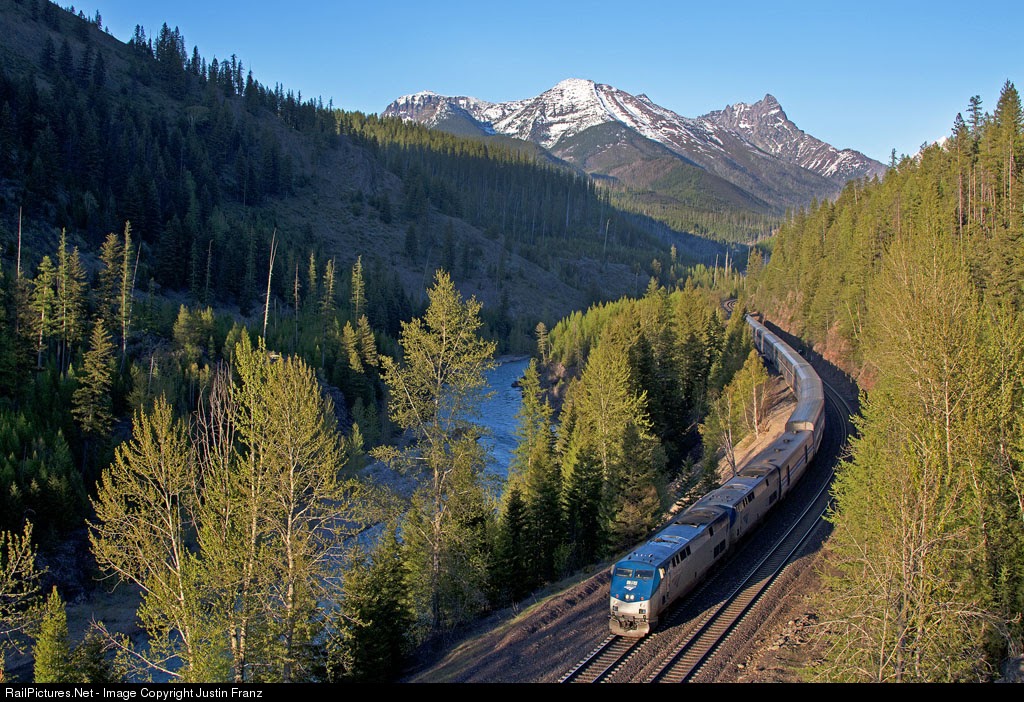
The Empire Builder (Photo Courtesy of Amtrak)
The park’s boundaries are shared by both the US and Canada, and the two nations work together to keep the land safe, protected, and ready to welcome visitors. If you’re looking for a mountain escape, this is the park for you.
Crater Lake National Park
The Coast Starlight Line Connecting Seattle and Los Angeles
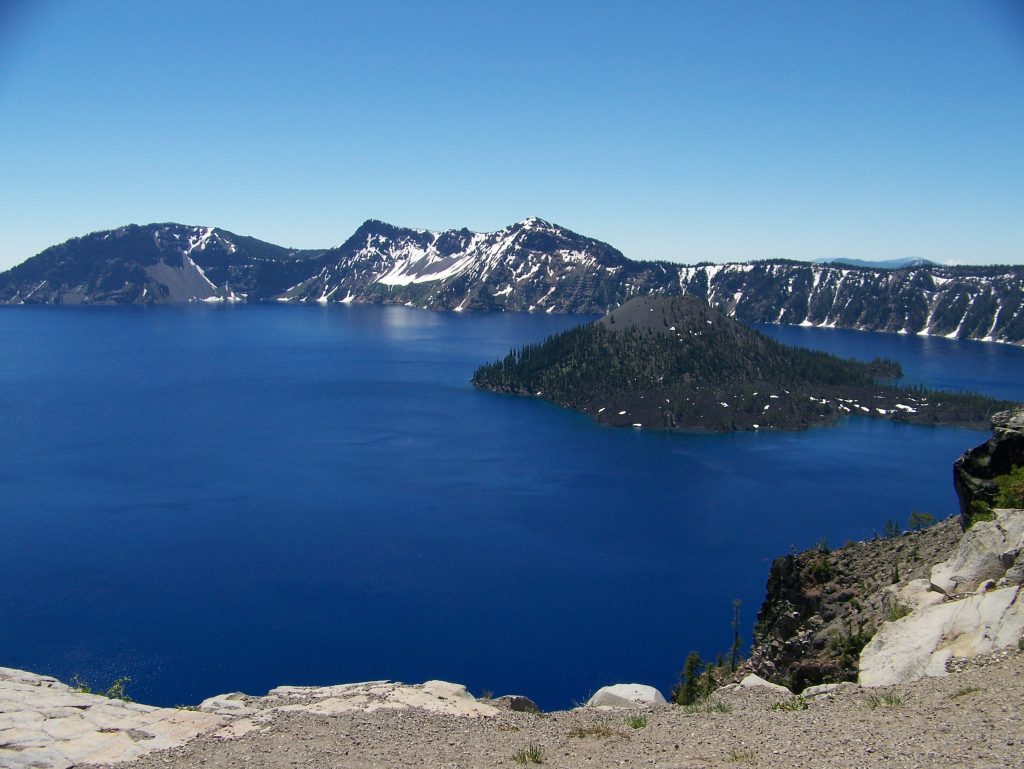
Crater Lake (Photo Courtesy of Amtrak)
Crater Lake is the deepest lake in the US, and the 7th deepest in the world, diving down to almost 2,000 feet. The lake was formed when the volcano, Mount Mazama, had a massive eruption around 7,000 years ago. The pressure of the eruption was so immense that it caused the volcano to collapse in on itself, forming the crater that is now Crater Lake. Nowadays, the park is a haven for hiking, paddling, and camping.
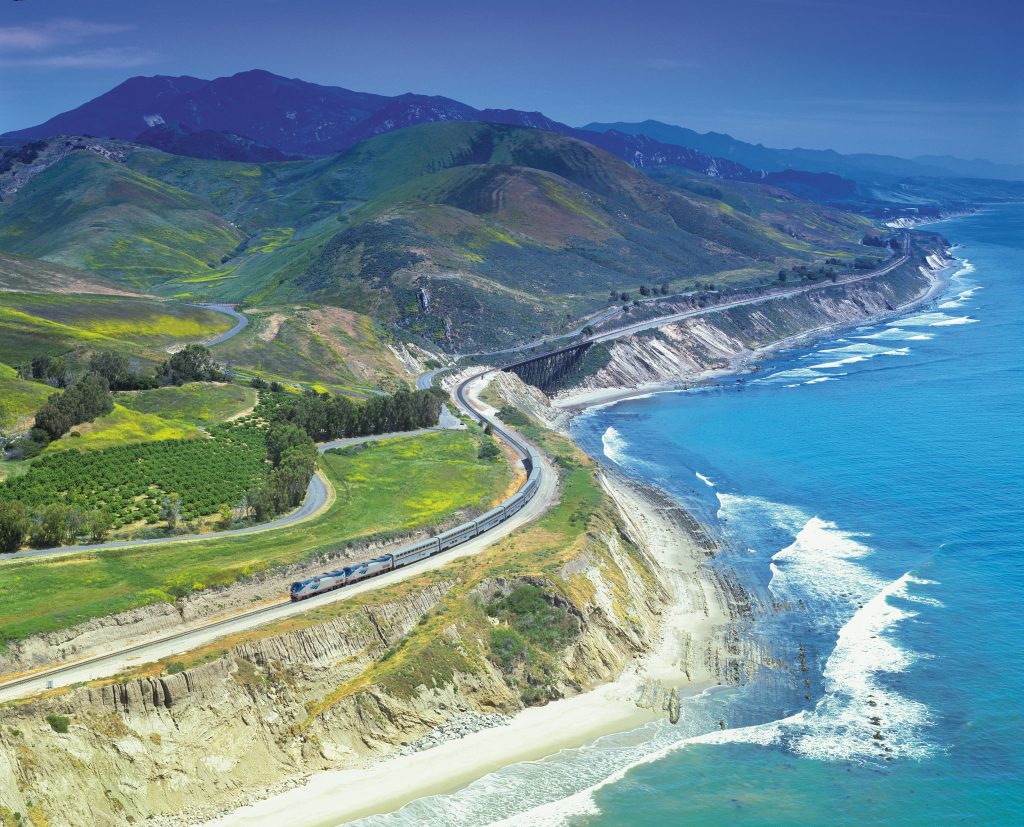
The Coast Starlight (Photo Courtesy of Amtrak)
The Coast Starlight is also an absolutely gorgeous journey, allowing you to watch as the beaches of Southern California turn into the forests and mountains of the Pacific Northwest. It’s the kind of train ride that’s so beautiful, you might want to hop on board for the entire journey!
Grand Canyon National Park
The Southwest Chief Line Connecting Chicago and Los Angeles
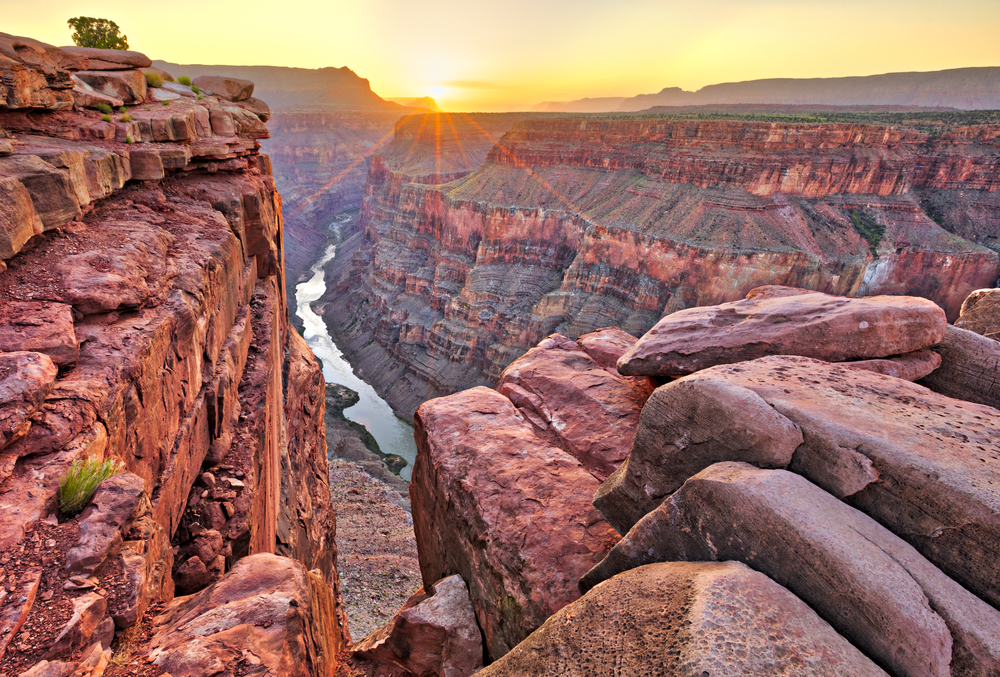
The Grand Canyon (Photo: Anton Foltin)
Nothing quite says the American West like the Grand Canyon…In fact, nothing says beautiful, awe-inspiring natural wonder quite like the Grand Canyon, either. The canyon runs 277 miles long, can drop to a depth of one mile deep, and at its widest point, is 18 miles wide. The entire region is a hiker’s paradise and is also popular for road trips.
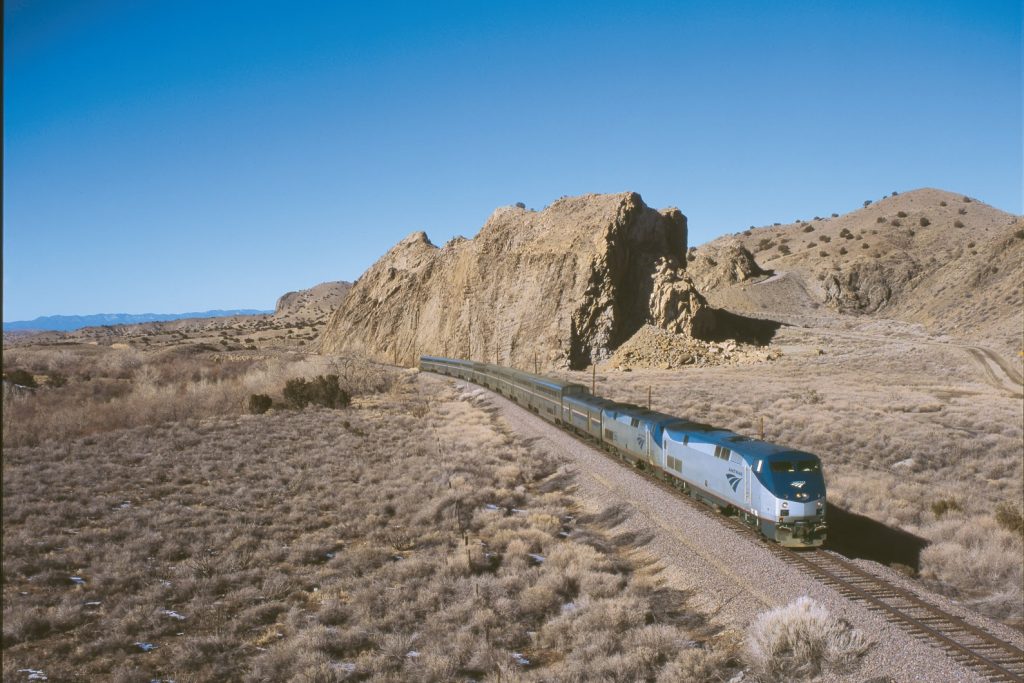
The Southwest Chief (Photo Courtesy of Amtrak)
At the bottom of the canyon runs the Colorado River, which is known as being one of the best whitewater rafting destinations in the entire country. The park is also home to the historic El Tovar Lodge, which holds about just as much history as the canyon itself.
Canyonlands National Park
The California Zephyr Line Connecting Chicago and San Francisco
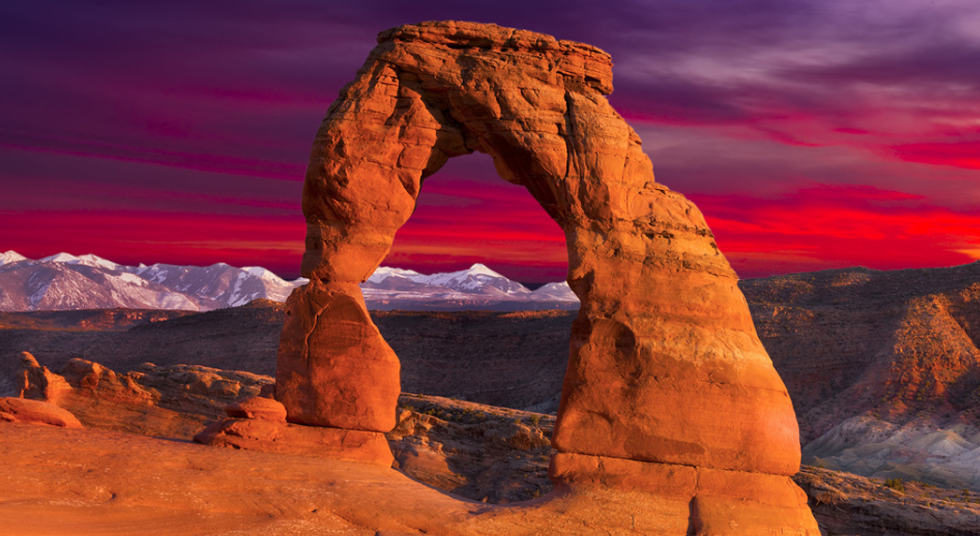
Canyonlands (Photo Courtesy of Amtrak)
Canyonlands is famous for its stunning rock formations that were created from thousands of years of erosion. From the picture-perfect Mesa Arch to the Island in the Sky and Horseshoe Canyon, the park is loaded with natural geological formations that look so pristine you’d think they were carved by Michelangelo himself. The park also has ancient rock paintings created by native tribes.
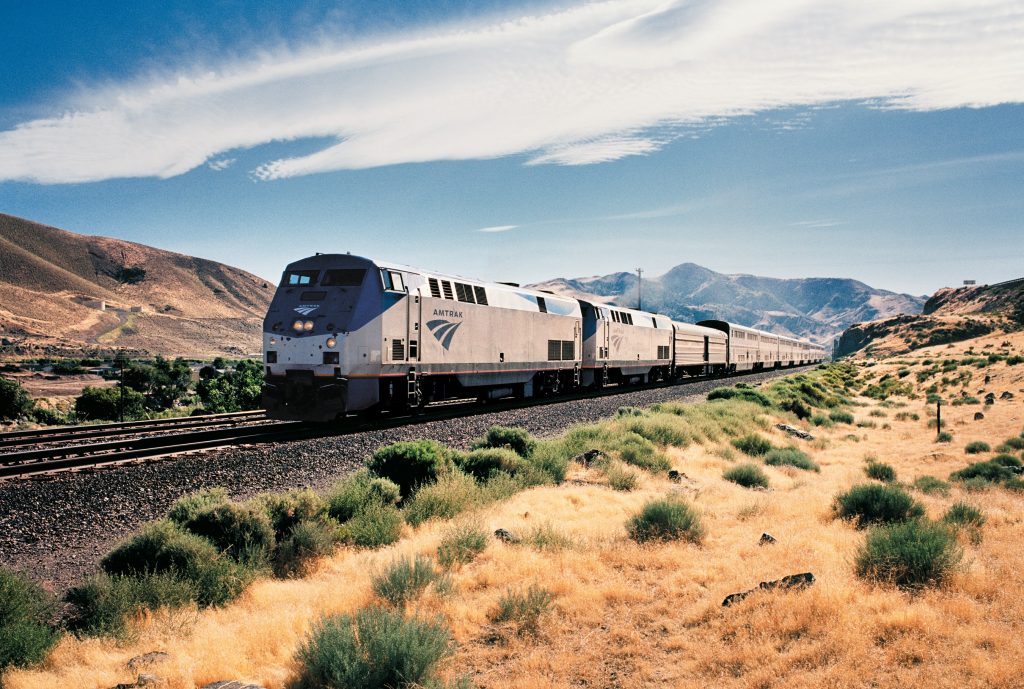
California Zephyr Photo Courtesy of Amtrak)
Strangely enough, Canyonlands received a huge boost in popularity after the release of the survival memoir, 127 Hours, and the blockbuster film that soon followed. The park has since gone on to be a sort of pilgrimage for rock climbers everywhere.
Shenandoah National Park
The Crescent Line Between New York and New Orleans
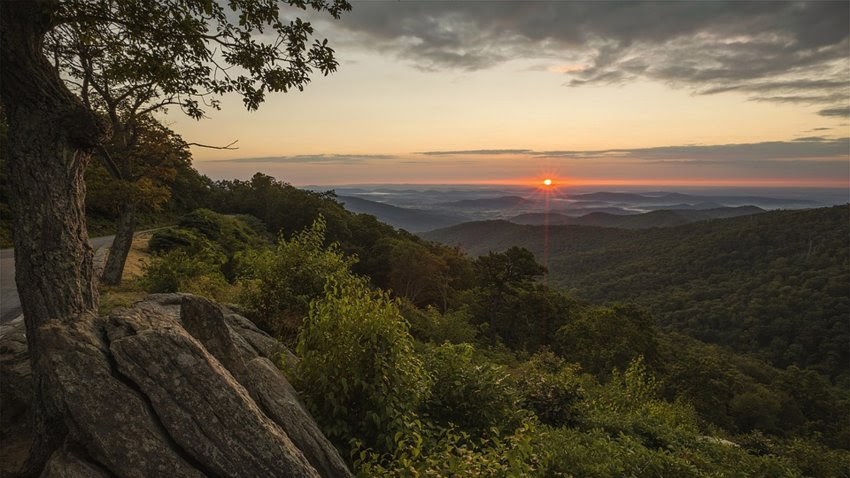
Shenandoah Mountains Photo Courtesy of Amtrak)
Shenandoah National Park in Virginia is a protected section of the Blue Ridge Mountains in Appalachia. The park is famous for its history of early American settlement and the Civil War, as well as its natural beauty. Rolling hills, waterfalls, and lush meadows provide a home to black bears, deer, foxes, river otters, and more.
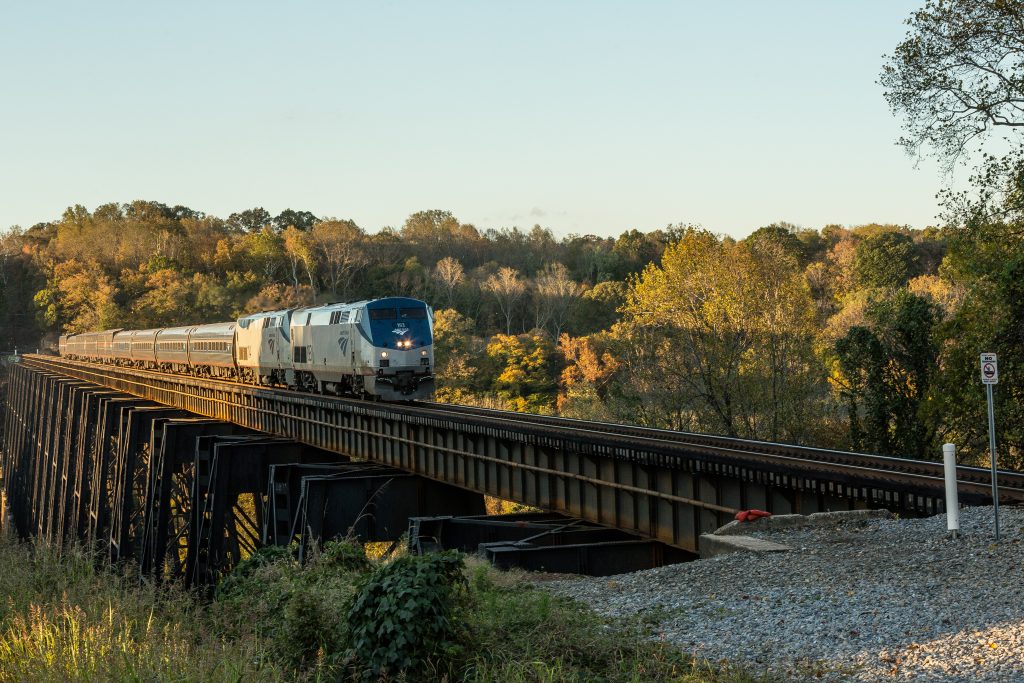
The Crescent – Photo Courtesy of Amtrak
But the park is most stunning in Autumn when the foliage glows in fiery reds, glistening golds, and brilliant oranges. Everywhere you turn, there’s another postcard-ready sight to behold. It’s no wonder the park is so popular amongst “leaf peepers”.
Harpers Ferry National Historical Park
The Capitol Limited Line Between Washington DC and Chicago
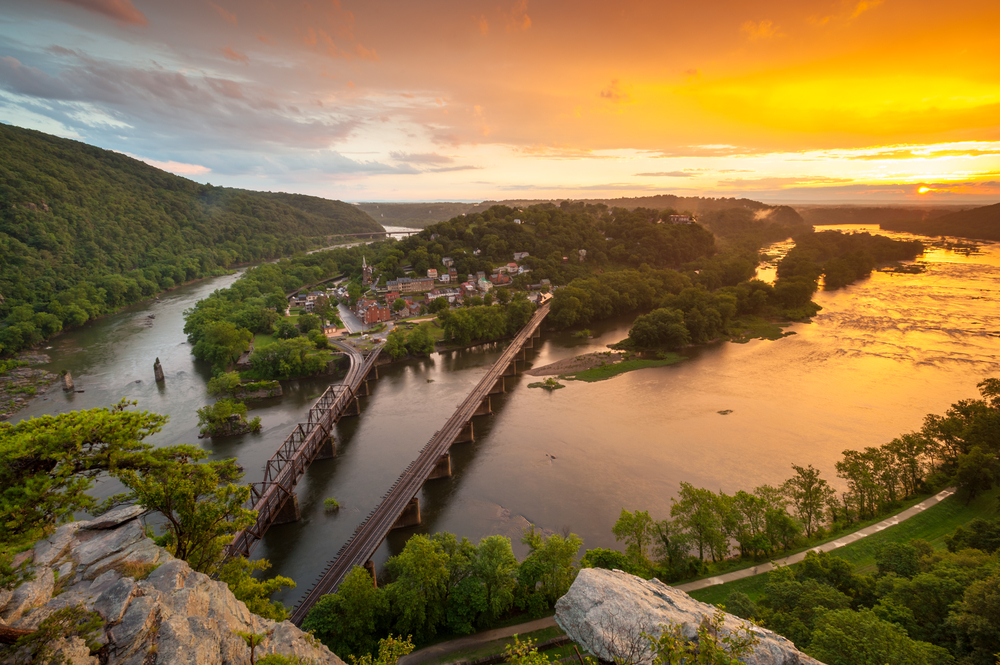
Harpers Ferry – Photo: MarkVanDykePhotography
In 1859, abolitionist John Brown led a group that tried to capture an armory in Harpers Ferry, West Virginia. Brown had hoped to use the weapons to help arm slaves in order for them to defend themselves against abuse. Tragically, Brown and his group were surrounded and Brown was hung…but not until he gave his final words that civil war was on the horizon, and that America would soon have to face a reckoning for its ways.
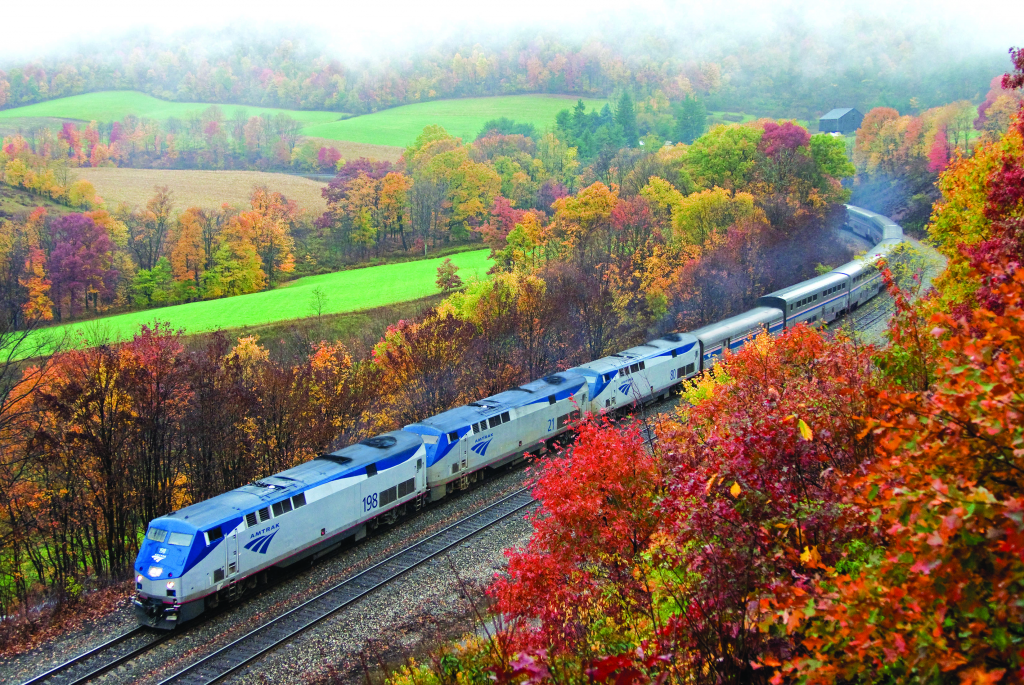
Capitol Limited – Photo Courtesy of Amtrak
Today, the park is home to hiking trails, historical monuments, and even preserved buildings from the event. The town itself is also worth taking a stroll through, with a quaint main street filled with local shops and cafes, all sitting directly next to the Shenandoah River, surrounded by mountains and rocky cliffs.
You May also Like:
On the Road Again: Will Camping & RVing be the Hottest Trend in Travel this Year?
10 of America’s Best National Parks


